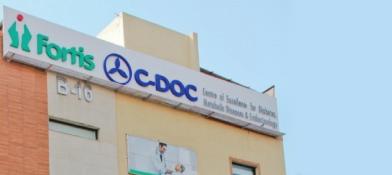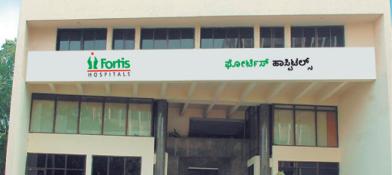Bone scan
A bone scan is used to diagnose problems and conditions affecting bones and its metabolism. Bone regeneration is a physiological process where bones break down and reconstruct through bone metabolism. This regeneration happens when there is injury or bone breaks. To understand the severity of injury and detect abnormal metabolism, bone scan is an effective tool.
Details of bone scan
Bone scan is the imaging procedure that uses nuclear medicine to evaluate medical conditions. The doctors inject painless radionuclide or radiotracers which emits radioactive energy. This emittance of energy is detected by a special camera and processed into images. The areas which take up radiopharmaceutical substances are indicated as abnormalities which appear as brighter or darker than normal bone scan.
Indications for bone scan
Bone scan imaging test is indicated for the following conditions:
- Classifying or staging the cancer as lung, prostate, or breast cancer
- Differentiating between primary bone tumors and metastases
- The identification and tracking of bone metastases.
- To identify the cause of unexplained bone pain
- To emphasize arthritis, aseptic necrosis,
- To detect compression fractures, occult bone fractures
- To determine bone infection or osteomyelitis.
Procedure:
This imaging procedure aids in the diagnosis of bone-related issues and the examination is safe as it uses minimal radiopharmaceutical dye. Here is the step wise approach for the procedure.
- The individual is asked to remove metallic belongings.
- The individual is subjected to lying down on the flat surface of the device.
- It is important for individuals to be still and co-operate throughout the procedure to get clear images.
- The doctor injects a radionuclide substance into the vein.
- The injected material takes 2-4 hours to work on the body.
- Depending on the suspected condition, the healthcare provider can begin imaging.
- This radionuclide substance emits gamma radiation, which is detected by the scanner, and the information is processed and creates a detailed image.
- The accumulated radionuclide area is called “hot spots,” which can detect bone infections, arthritis, malignant bone tumors and undetected bone trauma (which was undetected by X-rays).
Contraindications of bone scan:
There is no accurate contraindication for this procedure. Some of the related cases where the use of the test needs to be reconsidered are:
- During pregnancy, the diagnostic test is recommended only if the test outweighs higher than the risk exposure.
- Breast feeding should halt for 24 hours of radionuclide injection.
Advantages of bone scan
Bone scan images provide precise results with physiological accuracy at the molecular level.
- They provide early detection of conditions at the initial stages.
- The procedure is also used to monitor the conditions based on therapeutic interventions.
- Compared to a standard X-ray examination, the bone scan detects abnormalities significantly earlier
Interpretation of bone scan results
- The interpretation of bone scan results can present important details on bone health.
- The test is considered normal when a radioactive substance is evenly dispersed throughout the body. In other words, there are no major significant issues with bones that one should be worried about which signifies healthy bones.
- If the bone scan shows the bones as blacker “hot spots” or whiter “cold spots” it is the indication of abnormal conditions. Hot spots are regions where the substance shows excessive accumulation. Cold spots, on the contrary, are locations where there was no compound aggregation. When such observations are noted, the result might signify the possibility of conditions such as cancer, arthritis, or an infection in the bone. In such cases the health care provider can take a call to make an appropriate treatment plan or to advise on further evaluation based on the severity.
Commonly associated conditions of abnormal bone scan
Metabolic Disorders of Bones: An abnormal bone scan could result from impaired bone metabolism, which leads to a decrease in bone density and alters the structure. These findings may be metabolic bone disorders, such as osteoporosis or osteomalacia.
Fractures: For certain kinds of fractures, particularly stress fractures or fractures that are not grossly visible on X-rays, the bone scan finding may show abnormal. These may appear as hot spots in the bone scan.
Paget's Disease of Bone: This condition leads to bone remodeling, which is considered as chronic illness. The findings of this condition can be increased or decreased areas of radioactive substance uptake in the bone scan.
Avascular Necrosis: A lack of blood supply to a bone, results in a condition called avascular necrosis or dead bone tissue. The condition may be related to abnormal results in a bone scan test, which normally reveals decreased uptake of the radioactive substance in the affected area.
Additional measures for abnormal bone scan results
When the bone scan result is abnormal, further evaluation is usually necessary to explain what may happen. The following are the additional steps used to explain the inconclusive bone scan:
Physical Exam and Medical history: A detailed history of illness, symptoms, and physical examination has been taken by healthcare providers. The information obtained will guide the history of inquiries and form the basis of your diagnosis.
Further Imaging: Depending on what is displayed on the bone scan, further imaging studies, which include X-rays, computed tomography scan, magnetic resonance imaging, and positron emission tomography scan, may be recommended for a better view of the part involved. Imaging shall provide anatomic localization with better precision and specific identification of the problem.
Biopsy: In some instances, a biopsy might be warranted to collect a sample of the bone or surrounding tissue for further evaluation. A biopsy aids in ascertaining a diagnosis, mainly in circumstances where cancer, infection, or other conditions are highly suspected.
Laboratory Tests: To identify potential conditions related to bone health blood tests may be carried out. These tests may contain complete blood count, blood chemistry panels, tumor markers, or specific tests for infections or autoimmune disorders.
Consultations by a Specialist: Depending on the suspected underlying cause, the doctor may refer a patient to an oncologist, orthopedic specialists, rheumatologists, and infectious disease specialists to plan informed decisions.
Diagnosis and Treatment: Once the complete diagnosis is ruled out, a proper treatment course will be devised. Depending on the diagnosis and individual factors of a patient, the treatment may include medications, surgery, radiation therapy, chemotherapy, or targeted therapies.
Conclusion:
A bone scan has been extremely useful in pointing out bone fractures, infections, metastatic bone cancer, arthritis, and bone metabolic disorders. The detection of an abnormal area of metabolic activity enables health care professionals to establish diagnoses and work out a treatment plan.
Popular Searches :
Hospitals: Cancer Hospital in Delhi | Best Heart Hospital in Delhi | Hospital in Amritsar | Hospital in Ludhiana | Hospitals in Mohali | Hospital in Faridabad | Hospitals in Gurgaon | Best Hospital in Jaipur | Hospitals in Greater Noida | Hospitals in Noida | Best Kidney Hospital in Kolkata | Best Hospital in Kolkata | Hospitals in Rajajinagar Bangalore | Hospitals in Richmond Road Bangalore | Hospitals in Nagarbhavi Bangalore | Hospital in Kalyan West | Hospitals in Mulund | Best Hospital in India | | Cardiology Hospital in India | Best Cancer Hospital in India | Best Cardiology Hospital in India | Best Oncology Hospital In India | Best Cancer Hospital in Delhi | Best Liver Transplant Hospital in India
Doctors: Dr. Rana Patir | Dr. Rajesh Benny | Dr. Rahul Bhargava | Dr. Jayant Arora | Dr. Anoop Misra | Dr. Manu Tiwari | Dr. Praveer Agarwal | Dr. Arup Ratan Dutta | Dr. Meenakshi Ahuja | Dr. Anoop Jhurani | Dr. Shivaji Basu | Dr. Subhash Jangid | Dr. Atul Mathur | Dr. Gurinder Bedi | Dr. Monika Wadhawan | Dr. Debasis Datta | Dr. Shrinivas Narayan | Dr. Praveen Gupta | Dr. Nitin Jha | Dr. Raghu Nagaraj | Dr. Ashok Seth | Dr. Sandeep Vaishya | Dr. Atul Mishra | Dr. Z S Meharwal | Dr. Ajay Bhalla | Dr. Atul Kumar Mittal | Dr. Arvind Kumar Khurana | Dr. Narayan Hulse | Dr. Samir Parikh | Dr. Amit Javed | Dr. Narayan Banerjee | Dr. Bimlesh Dhar Pandey | Dr. Arghya Chattopadhyay | Dr. G.R. Vijay Kumar | Dr Ashok Gupta | Dr. Gourdas Choudhuri | Dr. Sushrut Singh | Dr. N.C. Krishnamani | Dr. Atampreet Singh | Dr. Vivek Jawali | Dr. Sanjeev Gulati | Dr. Amite Pankaj Aggarwal | Dr. Ajay Kaul | Dr. Sunita Varma | Dr. Manoj Kumar Goel | Dr. R Muralidharan | Dr. Sushmita Roychowdhury | Dr. T.S. MAHANT | Dr. UDIPTA RAY | Dr. Aparna Jaswal | Dr. Ravul Jindal | Dr. Savyasachi Saxena | Dr. Ajay Kumar Kriplani | Dr. Nitesh Rohatgi | Dr. Anupam Jindal
Specialties: Heart Lung Transplant | Orthopedic | Cardiology Interventional | Obstetrics & Gynaecology | Onco Radiation | Neurosurgery | Interventional Cardiology | Gastroenterologist in Jaipur | Neuro Physician | Gynecologist in Kolkata | Best Neurologist in India | Liver Transfer | Best Cardiologist in Delhi































